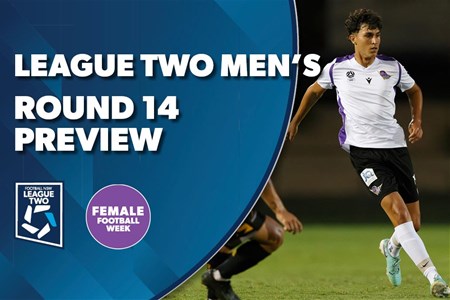In The Technical Area with Rich Lacey

Rich Lacey is currently Youth Technical Director at Curl Curl Football Club.
When did you first start coaching and why?
I completed the English FA Preliminary Coaching Badge in 1993 encouraged by Andy Marchant my old PE Teacher as I was volunteering at my old secondary school (Dorothy Stringer in Brighton) and helping to coach the football team. From that experience I enrolled and completed my Teaching Qualification in Physical Education. Playing football at School, College and University helped to keep me engaged enough to stay in the education system. I was never the most academic student! Becoming a PE teacher has enabled me to stay involved in football and develop my interest in coaching.
What do you think are the 3 main characteristics of a successful coach?
- Love for the game: Drives your internal motivation to turn up week in, week out, year after year and desire to improve.
- Ability to develop positive relationships: This involves a few other characteristics such as building trust and respect. But also wanting to develop each individual player.
- Patience: Developing players who love the game and want to improve takes time. I generally coach teenagers and patience is required on a session to session basis but also long term.
How do you keep developing yourself as a coach to be the best you can be for your players?
I have always enjoyed coach education but over the last 3 years I have been slowly completing a Masters of Education (Sports Coaching) through Sydney University. This has given me a much broader understanding and knowledge of coaching. I have one more unit to go! I wrote my dissertation on the benefits of grass roots clubs facilitating regular free play games.
I believe that whilst coaching is great for player development that not enough young players in Australia are playing unstructured, uncoached games. At Curl Curl I organise free play games every Friday 4.30pm to 6pm.
If you could turn back the clock, what advice would you now give to yourself when you first started coaching based on the experiences you have had?
“Coaching is not all about trying to win every game, especially as a development coach. Enjoy the game and work with young players to improve for the long term.”
As a young coach I was very focused on trying to win games. This came from my own playing background and the coaching that I had received. Most coaches are now aware of the effect an over emphasis on winning has on the environment you create as a coach. For example, weaker players receive less game time, the coach attempts to control the game from the sideline with explicit instructions.
I arrived in Australia in 2005 and I started my coaching badges here in 2009, I fully embraced the developmental approach that was throughout the FFA National Curriculum. It had a significant influence and initiated major changes in the way I coached and saw coaching.


